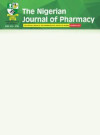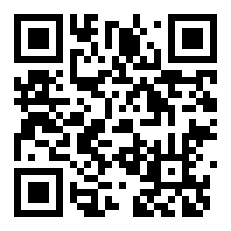Perception of Students about Teaching and Assessments in a Nigerian Pharmacy School
Keywords:
Pharmacy education, Teaching, Learning, AssessmentAbstract
Background: Students have been identified as the first stakeholders of the teaching profession and their perspectives on teaching and learning should be considered. The study aimed to assess the perception of pharmacy students about teaching, learning and assessments.
Methods: The study was a cross-sectional survey of Pharmacy students (200L-500L) in Obafemi Awolowo University (OAU) IIe-Ife. At 95% confidence interval, the sample size used was 510. Data collection involved the use of pretested structured questionnaire. The instrument was administered to all the four levels using hard copy questionnaire. The data collection lasted about two weeks and the forms were retrieved from respondents immediately after completion. Data were analysed using descriptive statistics such as frequencies, percentages, standard deviations and mean while KruskalWallis test was employed for inferential determinations.
Results: Majority of the respondents (76.7%) had positive perception of lecturers and teaching across all the levels. However, there was a significant ix' = 10.81; df= 3; p = 0.002) increasing negative perception with students in higher levels. Majority of the students (91.1%) had positive perception about class participation and learning though not statistically significant (y' = 3.68; df = 3; p = 0.298) across the different levels. Most of the respondents (69.3%) had positive attitude about assessments in Pharmacy. There was a statistically significant increase in negative attitude about the impact of teaching and learning on assessments with level of the students (y'= 8.836; df= 3; p= 0.032).
Conclusion: The study concluded that the students had positive perception about teaching, learning and assessment. However, the students in the lower levels had more positive perception than those in the higher levels. Therefore, student in higher levels should be encouraged more during classes and clerkship trainings.
References
Divya, R (2017). Digital education and the evolution of traditional educational system. International Journal of Research in
Economics and Social Sciences 7(7); 260- 269
Robinson, E (2004). The pharmacist as educator: implications for practice and education. American Journal of Pharmaceutical Education 68(3); 72.
Bhargava, A and Pathy, M(2011) . Perception of student teachers about teaching competencies. American International Journal of Contemporary Research 1(1); 77-81.
Johan, R and Harlan, J (2014). Education nowadays. International Journal of Educational Science and Research 4(5); 51-56.
McMahon, W (2017). The social and external benefits of education. Encyclopedia of International Higher Education Systems and Institutions 2-13.
Struyven, K, Dochy, F and Janssens S (2005). Students' perceptions about evaluation and assessment in higher education: A review. Assessment and Evaluation in Higher Education 30(4); 325-341.
Falchikov, N (2004). Improving assessment through student involvement: Practical solutions for higher and further education teaching and learning. London: Routledge.
Wade, B and Moor, M(1992). Patterns of education integration. International perspective on mainstreaming children with special
educational needs. Triangle Book LTD. United Kingdom.
Dhindsa, H, Omar, K, and Waldrip, B. (2007). Upper Secondary Bruneian Science Students' Perceptions of Assessment. International Journal
of Science Education 29(10); 1281-1280.
Screen, M (1967) . The methodology of evaluation (Vol.1). Washington, DC: American Educational Research Association.
Gulikers, J, Bastiaens T, Kirschner P and Kester L (2006). Relations between student perceptions of assessment authenticity, study approaches and learning outcome. Studies in Educational Evaluation 32(4); 381-400.
Goodrum, D, Hackling M, and Rennie L (2005). The status and quality of teaching and learning of science in Australian schools . Canberra:
Department of Education, Training and Youth Affairs. Australia.
Joshi,Y and Pant, R(2011). A study to evaluate the perception of pharmacy students towards the pharmacy profession. International Journal of Pharmaceutical Sciences and Research 2(12); 31 14-31 17
Badyal, DK, Bala, S and Kathuria, P(2010). Student evaluation of teaching and assessment methods in pharmacology. Indian Journal of Pharmacology 42(2);87-89
Maiwada, DA (2001). Non-evaluation of lectures, bane of education. In Nigerian University System News 10(3); 12-15.
lyamu, EOS and Aduwa-Oglebaen, SE (2005). Lecturers' perception of student evaluation in Nigerian Universities. International Education Journal 6(5);619-625.
Geoff, P (2004). Teaching today: A practical guide. United Kingdom: Nelson Thornes.
Ibrahim, A (2014). The students' perception of Teachers classroom effectiveness on their self-concepts in Lagos metropolis. Journal of Teaching and Teacher Education 2(2); 133-141.
Krejcie, RV and Morgan, DW (1970). Determining sample size for research activities. Educational and Psychological Measurement 30; 607-610.
Peterson, KD (2000). Teacher evaluation: A comprehensive guide to new directions and practices (2nd ed.) . Thousand Oaks, CA: Corwin
Press.
Brazeau, GA., Meyer, SM., Belsey, M., Bednarczyk, E. M., Bilic, S., Bullock, J., DeLander, G. E., Fiese, E. F., Giroux, S. L., McNatty, D., Nemire, R., Prescott,W. A., Jr, & Traynor, A. P. (2009). Preparing pharmacy graduates for traditional and emerging career opportunities. American Journal of Pharmaceutical Education, 73(8); 157.
Mort, J R, Johnson,TJ, Hedge, DD. Impact of an introductory pharmacy practice experience on students' performance in an
advanced practice experience. American Journal of Pharmaceutical Education 2010;74(1): 11.
Sempere, J, Garcfa, M, Marco, F, Sen, ML. and Segovia,Y (2010). The use of active methodologies: A teaching experience. lCERl 2010, Proceedings 5368- 5375.
Mirakzadeh, A G and Ghiyasi, F, Sharifzade, A and Sharifi, M (2011). Study of students' learning styles in agricultural students of Islamic Azad University, Takestan. Iran J Agric Econ Dev Res.40(2):4.
Marsh, EJ and Sin k, HE (2009). Access to Handouts of Presentation Slides During Lecture: Consequences for Learning. Applied Cognitive
Psychology24(5);691-706.
Brown, S (2005). Assessment for learning. Learning and Teaching in Higher Education 1 (1); 81-89.
McBer, H.(2000). Research into teacher effectiveness: A model of teacher effectiveness. Research Report No.216. St Clements House, 2-16 Colegate, Norwich. Retrieved from https://www.education.gov.uk/publications/eordering download/rr216.pdf.
Ministry of Education, (2009). National education policy 2009. Government of Pakistan.
Bauer, A and Koedinger, KR. (2007). Selection-based note-taking applications. San Jose,California,USA.
Campbell, J, Brownlee, J and Smith, D. (1996) The differential impact of teachers' approaches to teaching on secondary students' approaches to learning, Education Research and Perspectives, 23(2};95-111.
Akiri, AA (2013}. Effects of teachers' effectiveness on students' academic performance in public secondary schools; Delta State Nigeria. Journal of Educational and Social Research 3(3);105-111.
Ellett, CD, and Teddlie, E. (2003). Teacher evaluation, teacher effectiveness and school effectiveness perspectives from the USA. Journal of Personal Evaluation in Education, 17(1);101-128.
Markley,T.(2004). Defining the effective teacher, current arguments in education. White Mountains Regional School
District New Hampshire. Retrieved from http:!/citeseerx.ist.psu.edu/viewdoc/download?doi=1
1.1.549.7407&rep=rep1&type=pdf

Views | PDF Downloads:
1337
/ 286
/ 0
Published
How to Cite
Issue
Section
License

This work is licensed under a Creative Commons Attribution-NonCommercial 4.0 International License.


